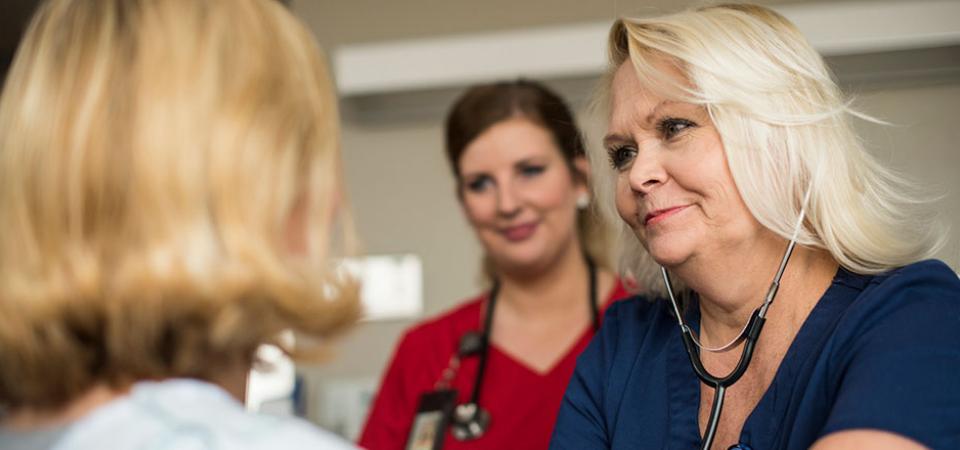Diabetes Self Management
As the name suggests, diabetes self-management and support is the process of giving people with diabetes—and, often, their family and friends—the tools they need to empower control over their disease. According to the American Association of Diabetes Educators (AADE), quality education—whether it’s provided in one-on-one sessions with a certified diabetes educator, or as part of a program with multiple sessions and instructors—focuses on seven key areas. They involve healthy eating, physical activity, blood glucose monitoring, taking medication as directed, problem solving, risk reduction and coping.
"Diabetes education isn’t a one-time cram session. The misunderstanding is that you go once and you’re done. But diabetes is always changing—the information changes, the medicines change, and you change, whether it’s because you’re facing new challenges or your medical history is changing.”
– Debbie Moore, RD, CDE, Diabetes Coordinator, Diabetes Care Services, at Stillwater Medical Center
That’s why the American Diabetes Association and the American Association of Diabetes Educators recommend diabetes education at these four times:
1. At Diagnosis
Your educator will focus with you on establishing your eating plan, creating short- and long-term goals for physical activity, monitoring your blood glucose, taking medications, reducing existing risks, such as smoking, and understanding your numbers.
2. At Least Yearly
Once a year, you and your doctor should assess whether additional diabetes education is in order. You may need it if you’re starting a new medication, you’re experiencing unexplained low or high blood glucose levels, or you aren’t meeting your goals.
3. When Life Is Complicated
Experiencing changes in your overall health, struggling with relationship issues, or dealing with quality of life challenges such as paying your bills? A refresher session can help you balance diabetes and lifestyle changes.
4. For Transitions in Life or in Care
Maybe you’re returning home after being hospitalized. Or maybe you’ve switched insurance plans, and the change is affecting your treatment options. Or perhaps you’ve moved. For anything that affects your care, diabetes education can help.
Program Details
Group classes are offered, and individual appointments are available Monday - Thursday from 8 am to 5 pm and Friday 8 am - noon.
Classes and individual sessions are taught by Certified Diabetes Educations (CDE).
If interested, please call our office: (405) 533-3612
Program costs are covered by Medicare and most commercial insurance companies.

